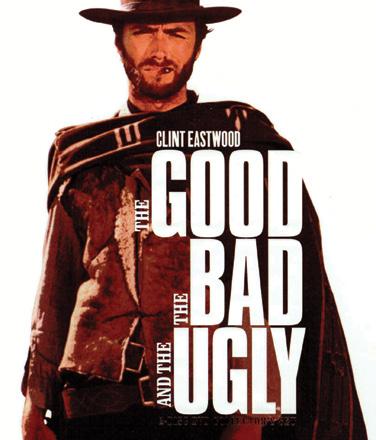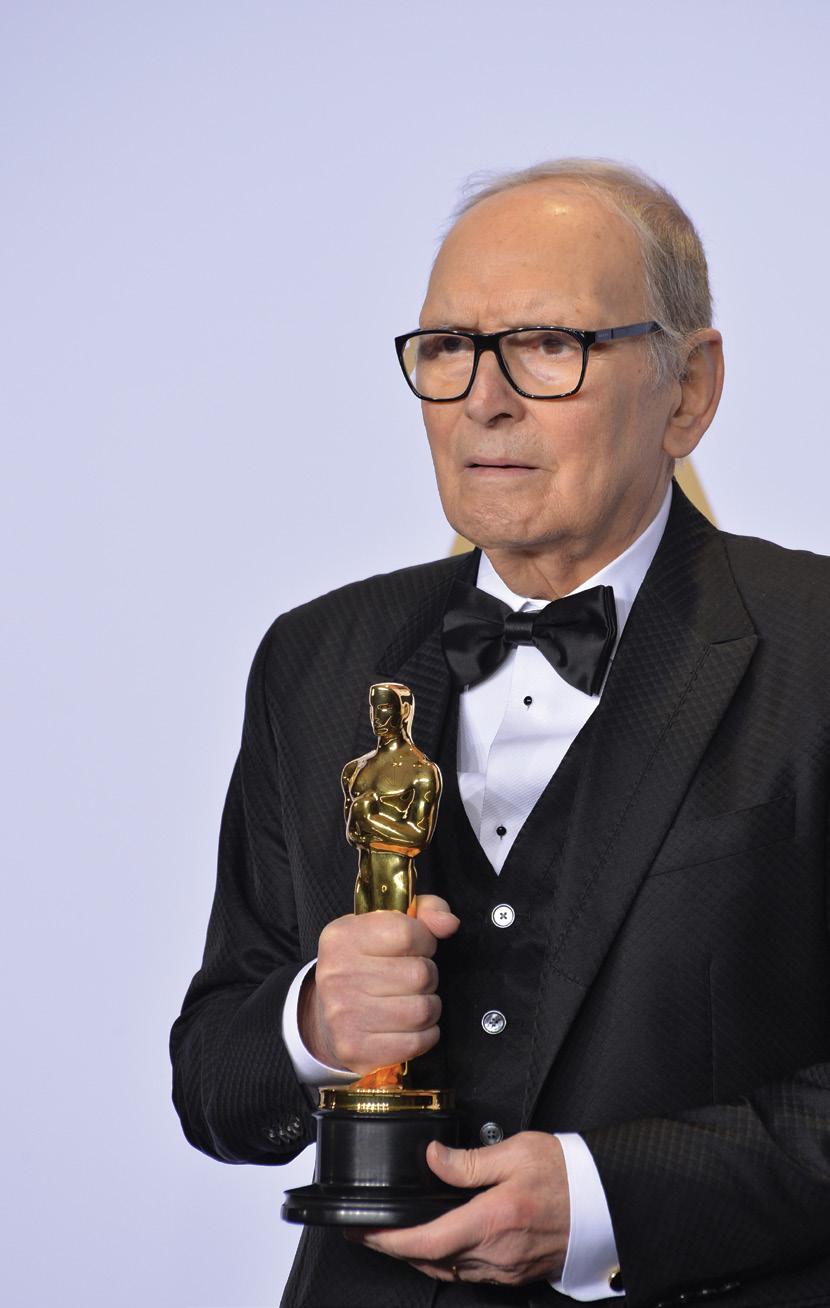
5 minute read
ENNIO MORRICONE - MAESTRO OF OUR TIMES
WORDS DARIO POLI MAESTRO OF OUR TIMES
PALESTRINA TO MORRICONE – TWO ROMAN ICONS
Ennio Morricone, (born November 10, 1928) was an Italian composer and conductor who died on the 6th July 2020 aged 91.
On that day, the world lost the greatest, most original, versatile, creative, composer and musician in a century, surpassing other talented musicians by leagues with his unique innovations. We’ll never see his like again and I am sad to feel his passing, but blessed to have been living while his genius was flowing out to all of us.
Ennio Morricone is the musician of our times, who with his heartfelt sensitiveness and distinct sound, inspired me emotionally and technically more than any other, (excluding the great classical composers of the past) from the first time I heard his arrangement of a simple love song Sapore di Sale, written and sung by Gino Paoli. I was smitten, by the depth and beauty of Morricone’s arrangement of this tender song and still am.

I was sixteen and overwhelmed by the musical arrangement, I enquired who was the arranger, and with my limited pocket money, bought every song with the name E. Morricone attached. Even in my youthful years, I sensed this name was exceptional; I felt a genius not yet discovered.
I was often ridiculed by my peers for my open endorsement of this unheard-of Italian musician that the world hardly knew. I remained certain of his unique talents and years later, my instincts proved to be correct and I was vindicated, as he became a household name almost overnight for his inventive music for the new exciting spaghetti westerns that out of the blue, like a bullet from a Colt 45, hit the cinema audiences with his unusual film scores for Sergio Leone’s Spaghetti Westerns, A Fistful of Dollars (1964), For a Few Dollars More (1965), The Good, the Bad and the Ugly (1966) and Once Upon a Time in the West (1968).

Beyond the western movies in the 80s, Morricone composed the scores for The Thing (1982), a John Carpenter horror movie, Leone’s Once Upon a Time in America (1984), Roland Joffé’s highly acclaimed film The Mission (1986), followed by Brian De Palma’s The Untouchables (1987) and Giuseppe Tornatore’s Cinema Paradiso (1988), including his stunning scores for Oliver Stone’s U Turn (1997), Tornatore’s The Legend of 1900 (1998) and Malèna (2000). Some of the more recent films he scored include De Palma’s Mission to Mars (2000) then Lajos Koltai’s Fateless (2005) and in (2009) Tornatore’s Baaria - La porta del Vento.

He is considered one of the most prolific and influential film composers of his era, composing over 500 film scores, and being awarded almost every prestigious prize in music. However, he was also a classical composer, who created numerous compositions for the concert halls and was invited to conduct his music at the UN.

Morricone has composed and arranged scores for countless film and TV productions. He is well-known for his longterm collaborations with international acclaimed directors such as Sergio Leone, Barry Levinson, Brian De Palma, and Giuseppe Tornatore.
He was born in Rome, the son of Mario Morricone, a jazz trumpeter and his wife Libera. He wrote his first compositions when he was six years old and was encouraged to develop this natural talent. Following in his father’s footsteps, he was inspired to take up the trumpet and first attended the National Academy of Santa Cecilia taking trumpet lessons at the age of nine and formally at the age of 12, he entered the conservatory in 1940.
Playing the trumpet, he learned composition, and choral music under the talented Goffredo Petrassi, who deeply influenced him. These were during the difficult years of World War II in heavily bombed Rome; the suffering of the people and his feelings of constant hunger, were part of his wartime experiences that influenced many of his scores for films set in that period and beyond.

Kraft74 / Shutterstock.com
From those dark days and with total commitment to his music, his life and professional career blossomed. Morricone also worked for variety shows, documentaries, Television and TV series, including in (1971) the US TV Western The Virginian and Moses (1974), then Marco Polo (1982). One notable composition, Chi Mai was used in the films, Maddalena (1971) and Le Professionnel (1981) as well as the TV series The Life and Times of David Lloyd George (1981).
He wrote the score for the Mafia television series La Piovra, including the themes Drugs and Blood, La Morale and L’immorale and was the music supervisor for the television project La Bibbia (The Bible).
In the late 1990s with his musician son Andrea, they collaborated in the Ultimo crime dramas. The duo received an Award-winning BAFTA for Nuovo Cinema Paradiso. Then in 2003, he scored another epic, for Japanese television, the Taiga drama about Miyamoto Musashi, Japan’s legendary warrior called Musashi.

At 87 he became the oldest Oscar winner ever, receiving the Oscar for the music of The Hateful Eight (2016). This was the culmination of many awards, including an honorific Oscar in 2007, plus five other nominations, The Golden Lion, five BAFTA awards, three Golden Globes, a Grammy Award and The Recording Academy award for The Good, the Bad and the Ugly (1966)
My two favourite recordings of Ennio’s music remain his brilliant arrangements and recordings made with the French singing star Mireille Mathieu recorded in the 1970’s, and his haunting score for Bertolucci’s powerful drama Novecento (1900) a truly inspirational work.
It’s said by cognoscenti that as a composer, Morricone conveyed Bach and Stravinsky to the cinema; a truly high compliment indeed. Film composer Hans Zimmer said: ”Ennio was an icon and icons just don’t go away, icons are forever.”
There is much more that can and will be written about this great composer, including his inherent modesty and total professionalism to his craft. To this day I remain his most fervent and devoted fan. I thank heaven that we were alive and fortunate to listen to and savour his divine music, being part of this composer’s unequalled, creative experience.










